
It’s not enough to know what not to do. We need to know what we are going to do when we’re running low in both the caffeine and patience departments. When we are in the days of going from child to child through the night, waking up early, swimming in mismatched socks and burning breakfast again, it can be hard to remember what we're "supposed" to do! Here are a few ideas you can practice to find out if it works well for your family:
First, stay calm
Keep your voice and your body calm. You are your child's mentor, guide, and most trusted influence. You do not prove that you're in charge by controlling your child, you prove you're in charge by controlling yourself. You may need to use your calm body to help them.
Example: Your child does not want to brush their teeth. Rather than continuing to say "you have to brush your teeth" in a thousand different ways, or making threats to try and convince them to do the thing, it might just take you gently helping them walk into the bathroom. And as you walk, say, "You don't want to brush your teeth right now. It is my job to help your teeth grow healthy and strong so we are going to brush your teeth together, I will help you. (We have more tips for teeth brushing here.)
Second, be compassionate
If you struggle to empathize with your child, try to think about how you feel when someone else exerts their will, authority, or agenda on
you. Chances are, you feel some discomfort. Hold boundaries and limits with compassion and empathy. Try to get to the heart of the issue by being curious about what's happening under the surface. For older children you can ask them, "Hey, I noticed ______________‚ what's up?" For younger children, you can validate their feelings while holding your boundary, "You are very sad it is time to leave the park. I understand, I feel sad when I have to leave my friends too."
Third, be clear
Peacemaker Parenting values teamwork and collaboration, and boundaries are primarily enforced to keep people, animals, and things safe and healthy. Being calm, compassionate, and clear about boundaries is kind, because it establishes a culture of safety and security. Calmly and clearly describe how you are going to help them or hold a boundary: "It is not safe to jump on the couch. I am going to take you outside so you can jump on the trampoline." For older children, you can offer a do-over.
Fourth, be co-regulating
You do not need to "fix" your child's feelings about your boundary. It is okay if they're disappointed, confused, overwhelmed, disoriented, upset, sad, and annoyed. Those are normal human emotions and your child will experience them thousands of times throughout their life. When you are not overwhelmed by your child's feelings, they will learn not to be overwhelmed by their feelings! Rather than shutting down their emotional reaction, be the non-anxious presence that they need. Your calm nervous system quite literally teaches their nervous system how to return to a state of calm (over many years and with lots of practice!).
Lastly, rely on wisdom, not rules when it comes to holding boundaries
As parents it is important for us to recognize when we've drawn a boundary unnecessarily, unreasonably, uncharitably, or without proper perspective. It is okay reconsider and change your mind - this models flexibility, humility, collaboration, and learning from mistakes. This requires wisdom, discernment, attunement to your child's physical, emotional, and sensory needs, self-awareness, and emotional maturity. It is a learning process, and that's okay.
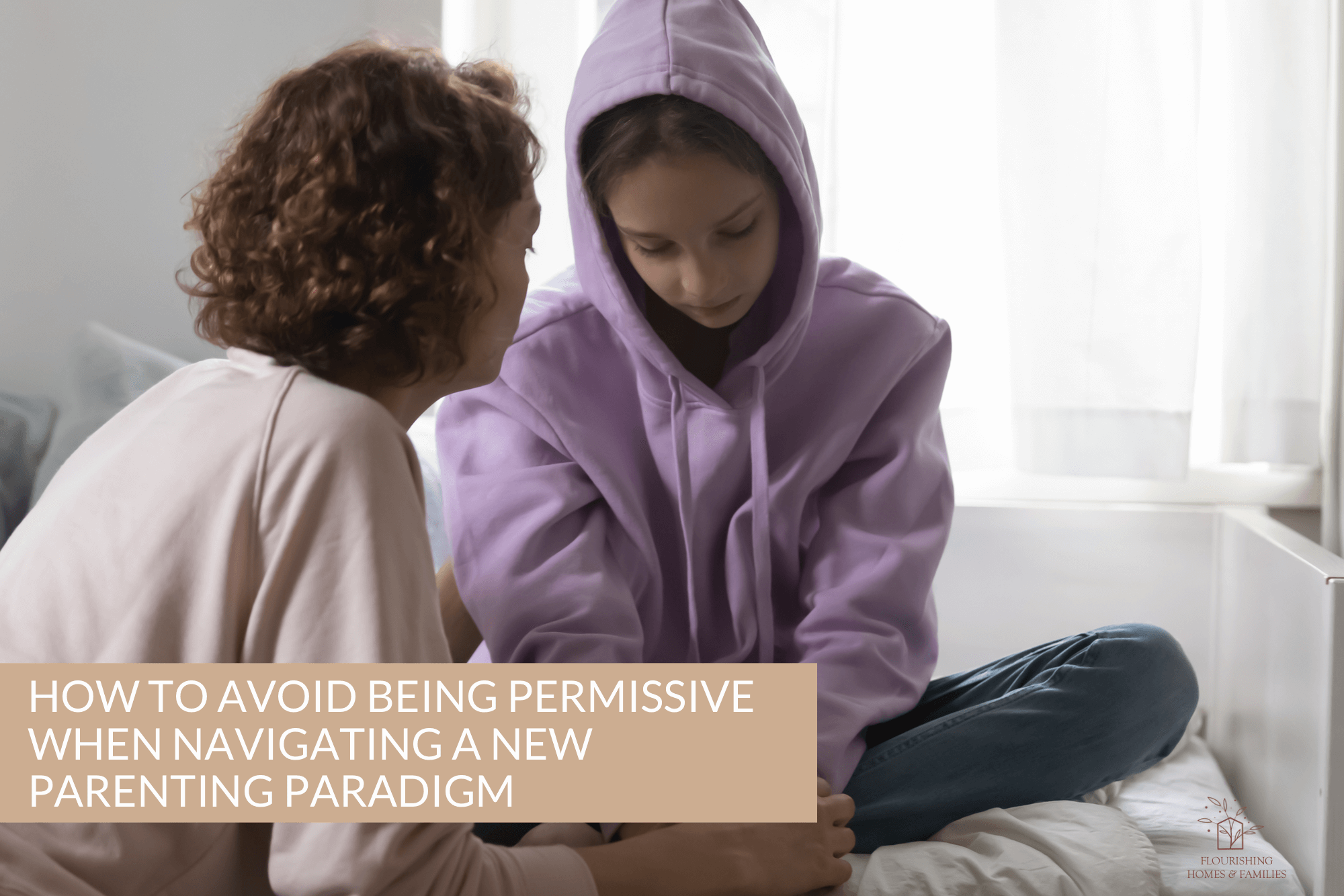
First, parenting without punishments isn't permissive. Here's why:
Jesus is our model. When we look at the life, teaching, and ministry of Jesus, we see the life-changing power of discipleship. Jesus confronted, rebuked, and corrected sin, but He never punished His disciples or followers. Even when He had the right to call for legal punishment, He chose mercy. Was Jesus permissive? No!
Jesus' warnings about mercy
Not only did Jesus give us a model for grace and mercy, but He also gave a warning about mercy in Matthew 18:23-35. And surprisingly, that warning is about being stingy with forgiveness and mercy—not being too generous with it. While His parables are not necessarily directives, the fact that His only warning on the topic is about not showing enough mercy, we as Christ- followers should give serious consideration to the implications.
Grace and mercy are not mutually exclusive with accountability
One of the key pillars of Peacemaker Parenting is that we recognize the need for accountability and restoration. We also recognize that God postures Himself toward us in reconciliation before we seek repentance. God initiated restored relationship and it cost Him everything and me nothing. So if we're looking to parent our children with Jesus at the center of our home and family, we have to be willing to bear the "cost" of repair when it is beyond their ability or capacity to repair. Understanding this means that accountability looks like restoration, not retribution and that it is a virtue taught over many years.
Avoiding Permissiveness: Remember your parenting is a calling, not a reaction to how you were parented.
For those of us who are followers of Christ Jesus, how we parent should first and foremost be a calling and conviction of the Holy Spirit in our lives, and it should reflect the heart, character, teaching, and life of Jesus.
It's much easier to slide into permissiveness when our parenting choices are made as a reaction to how we were parented. Rather than moving forward in the Way of Jesus, we swing the pendulum in the opposite direction of our upbringing. This is, quite simply, just another form of reactive parenting.
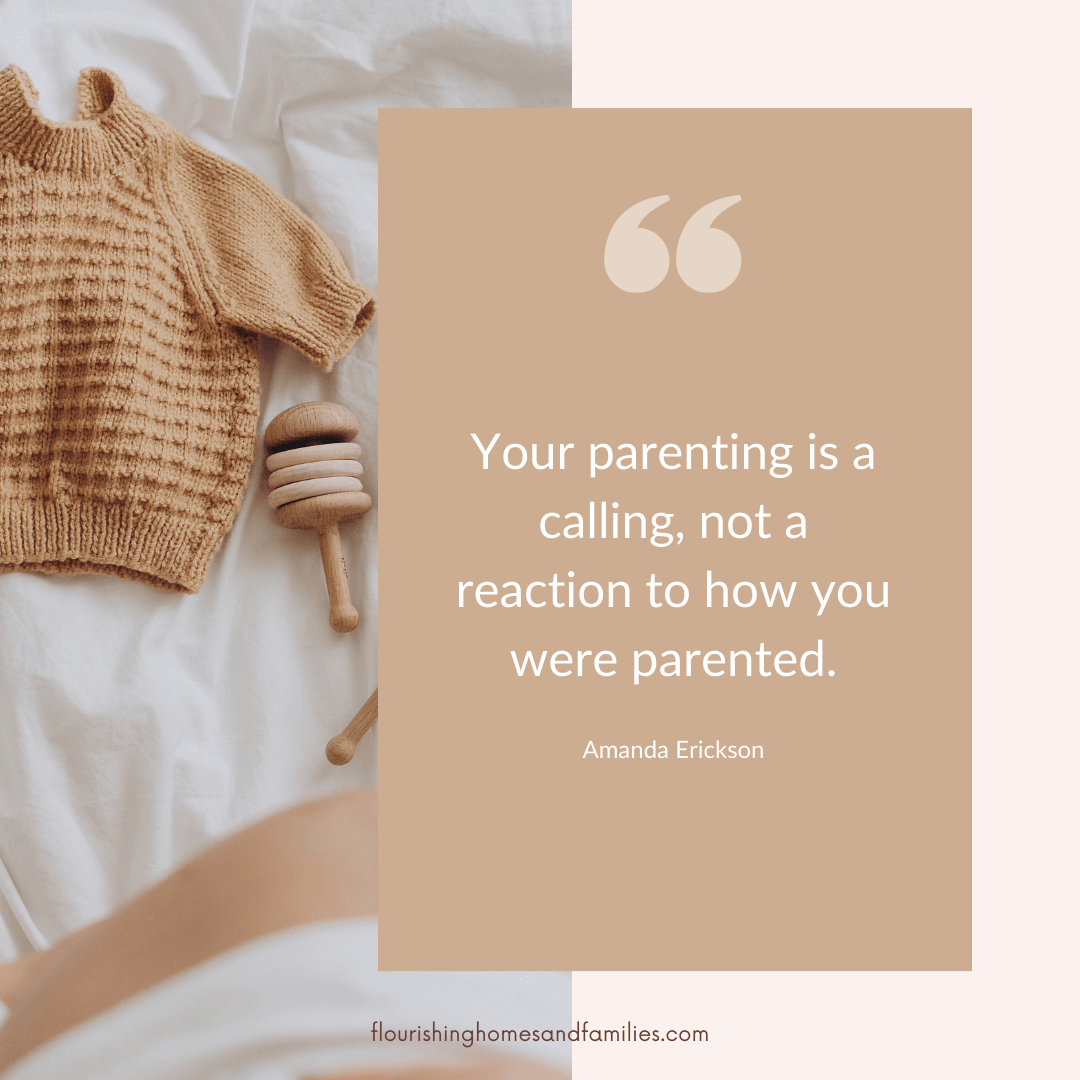
Avoiding Permissiveness: Respond to, but don't feel responsible for your child's emotions.
You are responsible for nurturing, connecting with, and meeting your child's needs. And you're responsible for teaching them about emotions. But that is not the same thing as fixing their feelings or trying to make sure they're happy all the time. When you feel responsible for making sure your child is happy, you'll wind up giving in to demands, whims, and wishes just to keep the peace. This is neither Jesus-centered nor healthy parenting. Instead of fixing, respond with understanding and compassion while also holding necessary boundaries.
Avoiding Permissiveness: Be clear, compassionate, and calm with boundaries
Kids are going to experience disappointment, confusion, upset, sadness, and overwhelm when it comes to holding boundaries. Those are normal human emotions that they'll experience thousands of times in life. Parents not being overwhelmed by their feelings teaches them how not to be overwhelmed by their feelings, so it’s up to us to learn to be be the non-anxious presence that they need.
Your calm nervous system quite literally teaches their nervous system how to return to a state of calm (over many years and with lots of practice!).
Focus on building your personal calming toolkit: try things like butterfly hugs, breath prayers, rubbing a circle on your chest, spending time in nature, getting some intense exercise more regularly, etc and see what helps you the most.
Avoiding Permissiveness: Be aware of developmental ability and capacity
Understanding how God designed children to develop is critical for having wisdom about your expectations for them. Unreasonable expectations are neither Christlike nor healthy. When you understand a child's ability and capacity, you are able to better discern how to respond to age-appropriate, but unacceptable behaviors. This requires so much wisdom, attunement to your child's physical, emotional, and sensory needs, self-awareness, and emotional maturity. It is a learning process, and that's okay.
Avoiding Permissiveness: Make, practice, and evaluate a response plan
One of the most tangible ways to minimize permissiveness is to have a plan of action. That plan should be based on your core values, an understanding of your child's development and learning style, and your ability and capacity. For parents who tend to be easily angered or reactive, the first part of their plan might be to step away in order to calm down.
While parents who don't struggle with anger will not need this physical reminder to be calm.) Writing out a plan of action for some of your most challenging parenting situations helps you be proactive and responsive in the heat of the moment.
Looking for tools that will help you parent with peace and purpose? Check out our upcoming workshop:
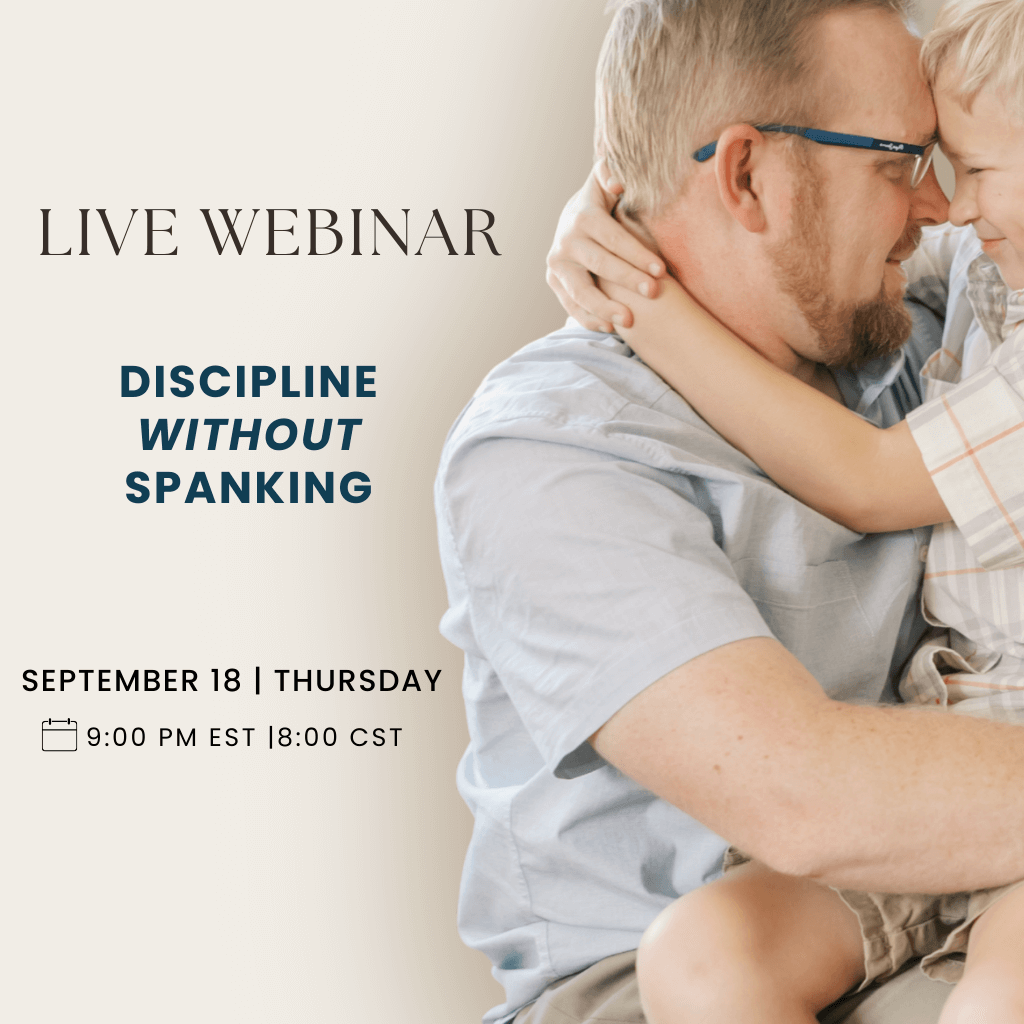

It is good to have visions and goals For many people, myself included, the start of the new year symbolizes a fresh start and new beginnings. I'm not trying to discourage you from setting goals. I've created many a vision board and set many intentions over the years. In fact, for the past three years I've shared the following parenting goals:
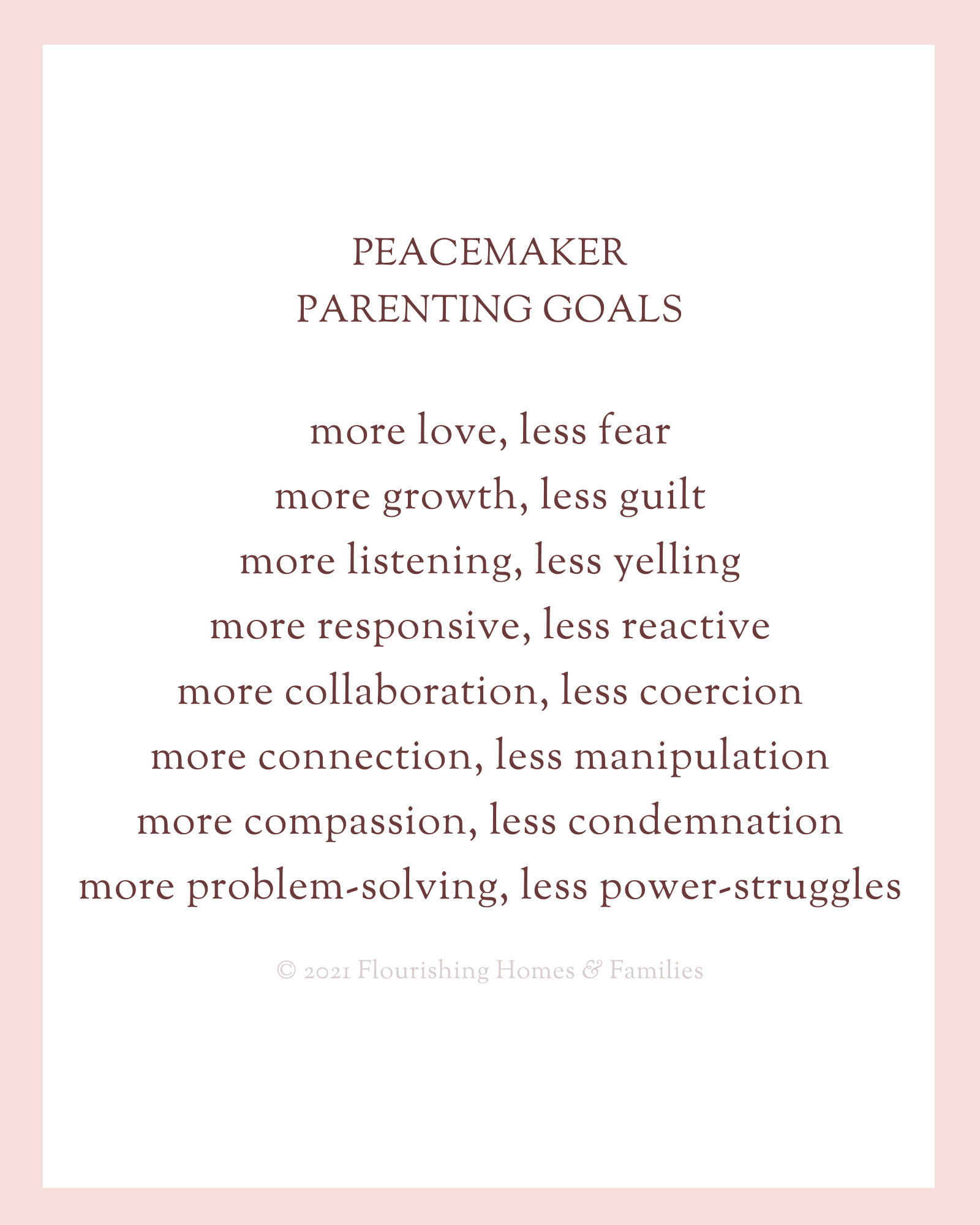
Unfortunately for many of us, New Year's isn't actually the best time to be setting new goals. Research indicates that only about 9% of people who make New Year's resolutions actually complete or accomplish them. So what if we switched it up a bit? And gave ourselves just the new habit of asking one question each day?

It's a simple question that may not have a simple answer. But I want to invite you to ask it because it centers Jesus as the source of growth and change, not our own grit and grind. And it reminds us that we are invited to participate in the work Christ is already doing, not merely to "do better, try harder" at being the person we wish we could be.
That is our hope, this new year. Jesus is at work in and through us. And while we may have good goals and big visions for change this year, we'll find sustainable growth in daily answering His invitation for small, often mundane maturing.
Goals are good. But if they're overwhelming in this season of your life, I hope you know that it is okay not to set any. Jesus is already working in and through you. He is always making all things new. He's making you new today, just like He was on October 25 and will be on April 3. And while it is helpful to embrace the motivation and energy we feel from others, if that motivation and energy leaves you feeling like you have to strive to keep up, to be new, or to be better, it's the wrong kind of energy. Jesus calls us to abide in, and rest in the work He has already done, and trust in and join Him in the work He is still doing.
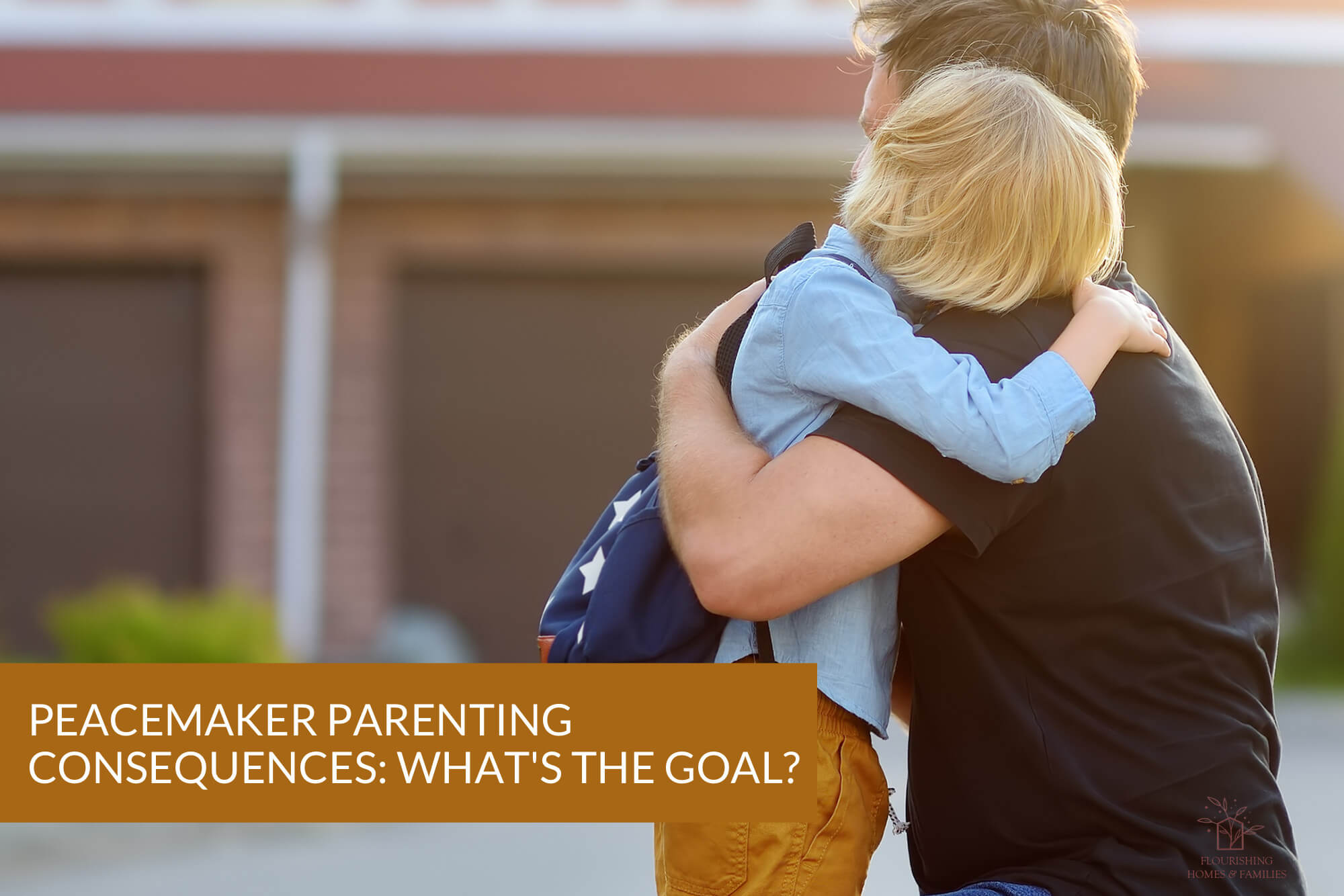
WHAT IS PEACEMAKER PARENTING?
Peacemaker Parenting is a model for parenting that is rooted in the teachings of Jesus and backed by modern neuroscience. It equips parents and caregivers to develop deeply connected and secure relationships with their children, and empowers them with tools and strategies to lead and guide their families with Jesus, and His grace, at the center of their homes and families. You can learn more about Peacemaker Parenting here.
WHAT ARE THE PEACEMAKING GOALS OF CONSEQUENCES?
Let's lay the foundation for consequences in Peacemaker Parenting. In the old parenting paradigm, you may have thought of consequences as a way to "teach them a lesson", make them feel as bad as they made someone else feel, or as a punishment for bad behavior. We sure did! We viewed consequences as a way to correct sin right here, right now, so that they'll never do it again! Right? Wrong.
Negative consequences can be highly effective at teaching children what not to do. They use a child’s fear/survival response in the brain to make associations between poor choices/bad behavior and negative stimuli. The problem is: the child isn’t actually learning anything. In the brain, it’s simply behavior adaptation for survival. And the skills, wisdom, perspective, critical thinking, emotional regulation, and alternative actions aren’t being developed or taught with negative consequences.
In Peacemaker Parenting, consequences serve a different purpose altogether. They are not intended to make a child suffer, in other words, they're not about retribution. And they’re not even reactionary. As much as we're able, consequences are responsive and proactive:
The three primary goals of consequences are:
When we shift our view of consequences from punitive to edifying, it completely changes how we interact with our children when consequences are needed.
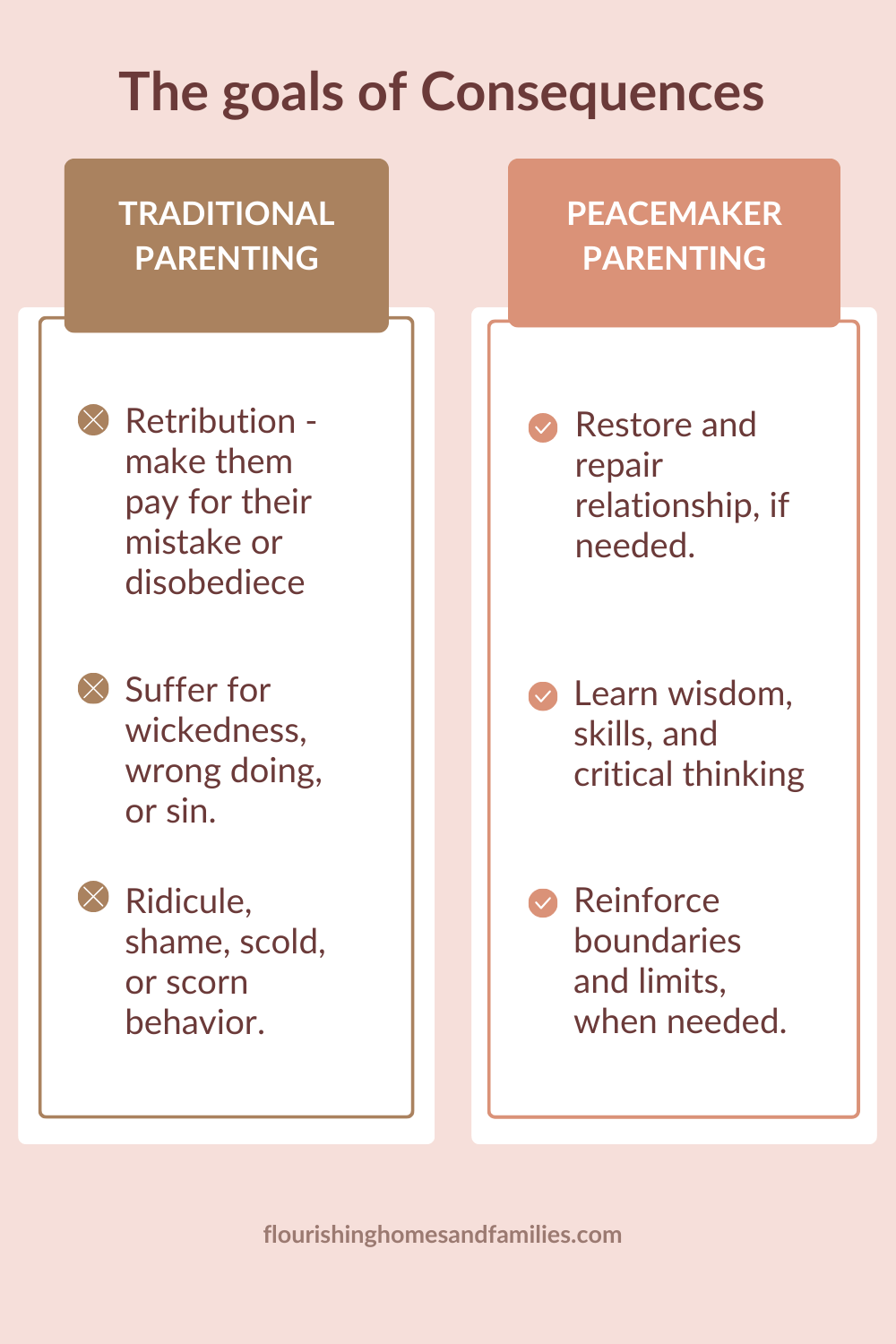
Lastly, consequences are primarily about equipping for the future, not about punishing the past. You can learn more about future-facing consequences here.
YOU MIGHT ALSO LIKE:

Holidays are a pretty special time of year. They're special for so many reasons, and young children don't always understand those reasons. What they do understand is that things are quite out of the ordinary, and that can cause feelings of anxiousness, excitement, apprehension, and curiosity.
Setting our little ones up for a great holiday experience means that we need to prepare them for what to expect. You can use the acronym P.R.E.P to help you know how to pepare your child for the next several weeks of extra excitement.
P = PREPARE
Leading up to the holiday season, prepare your child for what the next several weeks will look like. You may want to prepare them for:
- Schedules and routines that fall outside you family's normal. “We will be visiting Grandma and Grandpa and their supper time is usually a little bit later than ours. That’s okay, because we will have snacks if you get hungry before supper is ready.”
- Changes to how places look. (This is especially important for potential sensory overload.) “When we go to church tomorrow things might look a little different. There will probably be extra flowers and maybe a Christmas tree, and I just want you to know that it will look different.” or “When we go shopping there will be someone ringing a bell at the front doors. They’re collecting money for people who don’t have enough. The bell might seem really loud to you, it’s okay to cover your ears.”
- Family members and friends they aren’t very familiar with. “You’re going to get to see Aunt Brenda. Do you remember her? No? She loves you very much, and it’s okay if you’re not ready to talk to her or hug her right away. Sometimes it takes a little while to warm up to people. I will be with you.”
- New food. “Every year Grammy makes Swedish Meatballs for Christmas Eve dinner. We’ll make a plate for you and you’ll have a no-thank you bowl you can use. It’s okay if there's something you don't like.”
- Out of the ordinary events, such as Christmas cantatas at church, Christmas parties, and special family gatherings. "Tonight we are going to a candle light service at church. It will be darker and quieter than usual. We will take a fidget toy for you to play with quietly."
- Schedules for holiday celebrations. “After breakfast we will go to Grandma’s house. Once everyone gets there we will open presents, then we’ll eat lunch. After lunch you’ll have play time and then quiet time. If we need to come home for quiet time we can do that too.”
R =ROLE-PLAY
Use toys, pretend play, and role reversal to help prepare your child for big events and specific situations. Play is a great way to coach them on how to respond in tricky situations, and it allows them to practice so they can build skills and confidence. Some specific situations you may want to practice:
- Not liking holiday food
- Not wanting to give hugs or say goodbye
- If someone wants to play with their toys
- If they need alone time or quiet time
- Getting bored in the car
- Sitting through a play or pageant
- Connecting with long distance family virtually
- Taking turns
E =EXPLAIN
Using age-appropriate words and ideas, explain important traditions, family values, and details of how you celebrate. You may want to consider explaining:
- Why your family celebrates specific holidays
- Why family time or Friendsgiving is important to you
- Why you drive a long ways to see family even though car rides are boring
- Where important traditions came from
- Why you don't buy Christmas gifts for your child while they're shopping with you
- Why sitting through a quiet or different church service is important to your family
- Why you celebrate Jesus' birthday
These are conversations that are best had during moments of connection, and they should come across as normal conversation rather than “teaching” or lecturing. You may find yourself explaining these naturally in response to a tender and curious "Why?"
P =PLAN
Preparing your child for your "behavior response plan" helps them know that you will be steady and supportive even when they struggle. The good news is that this can reduce power struggles, and it reinforces attachment and connection. And bonus: there's something about knowing that your child knows what to expect from us that helps hold us accountable!
Here are a few ideas + scripts:
“If you get overwhelmed when everyone is opening presents, you and I can go to our snuggle spot to calm down, then go back to the presents when you’re ready. All of your presents will be there, and we all want you to be able to enjoy opening them.”
“If you don’t like Grandma’s food that’s totally okay. Everyone has different taste buds. We will take chicken nuggets and apples that you can eat if you don’t like any of the food you try.”
“Sometimes it is hard to leave Grandma's house. If it’s especially hard on Christmas day, you can try not saying goodbye.Goodbyes are hard! I will just carry you to the car.”
You don’t have to share your plan for every single scenario (and let’s face it, there’s a good chance your kiddo will present you with a situation you don't have a plan for!). Sharing your plan for you child ahead of time communicates compassion and empathy by normalizing strong emotions during high-stress situations and it builds confidence for you as a parent.
- Let them know the plan and what the day will look like. "Tomorrow is Thanksgiving Day! We're going to wake up and eat a special breakfast, then we're going to go meet Grandma and Grandpa at the park and have a picnic. You'll get to play and I bet Grandpa is going to want to swing you. After lunch we'll come home for quiet time, and then before bedtime we're going to go look at Christmas lights!"
- Empathize ahead of time. "You're going to see some family members we don't see very often. It's okay if you don't know what to say or if you don't feel like talking to them. Lots of people feel nervous to talk to new people."
- Remember to use visual clues, not time-bound clues throughout the day. "We're going to eat cheesecake and then we're going to pick up toys, say goodbye, and go home."
- Invite them to help plan and collaborate. "We're going to have a family Zoom call after lunch! Where do you think we should sit for our call? What toys or books do you want to share with Auntie Mac?"
- Make all plans equal. Have multiple plans for a peaceful, successful day, keep your expectations age-appropriate, be flexible, and know that if your little one winds up not getting a nap, it will still work out.
- Keep perspective. Holidays are wonderful, but stressful! There's a good chance even the adults in your family don't fully know what to expect! Cultivate compassion, empathy, and understanding for your little one, yourself, and your family.
Helpful Tool: Visual Routine for Kids









